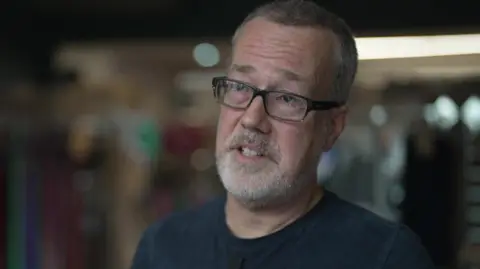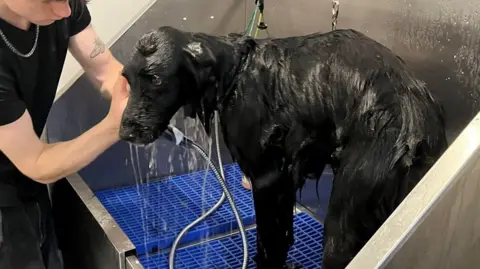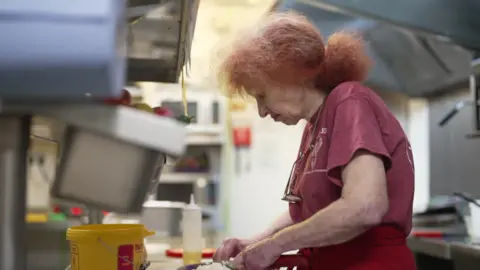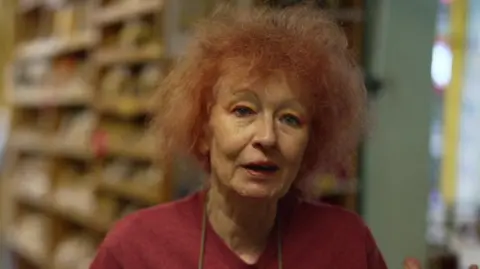'A tax hike will hurt my small business'
 BBC
BBCAt the Dandy Hound dog grooming salon in south London, a black Retriever-Collie cross named Apollo is having a wash and shampoo, while Nel, a mix of Shitzu, Pomeranian and West Highland Terrier, is getting a trim.
They're part of the lockdown generation of puppies that saw the pet canine population boom in the UK and made dog grooming one of the few industries that prospered out of the Covid-19 pandemic.
“More dogs meant more business obviously,” says owner Stuart Knowles.
He is relieved also to have survived recent cost-of-living pressures but worries that a rumoured employers' national insurance rise in the Budget is "going to hurt".
 Tim Donovan/BBC
Tim Donovan/BBCThe pampering side of the work is thriving, with a full diary of bookings and the constant hum of hair-dryers in his parlour in Peckham.
But Mr Knowles can see from the takings in the shop, which sells brands of beer and wine for dogs as well as the usual range of treats and accessories, that these are still uncertain times for the consumer.
Having faced a “recent rise in the cost of absolutely everything”, he believes now is not the time to put further constraints on small businesses.
“Everything is so tight, there is no wriggle room," he tells BBC London.
“We need things to start coming down, whether it’s VAT or Corporation Tax. If the costs continue to go up we will struggle."
'Less in the till'
In the kitchen of Peckham Middle Eastern restaurant Persepolis, Sally Butcher is cooking Borani Banjan, a dish made of aubergine, pepper sauce and spiced yoghurt.
She originally opened her shop as somewhere selling mainly Iranian and Afghan products, then started writing cookery books and the restaurant followed.
“I needed to experiment on people with my recipes,” she says.
Currently the number of customers coming through the door is holding up, but she notices people are spending less.
“They’re looking at the menu and thinking more carefully, and at the end of the day there’s less money in the till.”

Drawing on 18 staff who work varying hours at different times of the week, she is worried about the combination of tax rises and recently announced measures to regulate employers.
“We love our staff. Some want to work six hours a week, some want to do 30 hours," she explains.
"Anything that formalises the way they work and what they do will squeeze us, along with any sort of tax rise."
“In the hospitality sector, the main overhead is staff. We need flexibility,” Ms Butcher adds.

Both Ms Butcher and Mr Knowles accept that the current state of public finances mean some tax rises are required. Both also believe the Chancellor Rachel Reeves should choose the same target.
“I think big businesses have to pay proportionally more.
"It is counter-intuitive and ridiculous to impose more stringent things on small businesses at this time,” says Ms Butcher.
Mr Knowles says small enterprises have no choice over paying all their tax compared to major big businesses.
“There are no loopholes, we just have to do it,” he adds.
Listen to the best of BBC Radio London on Sounds and follow BBC London on Facebook, X and Instagram. Send your story ideas to [email protected]
